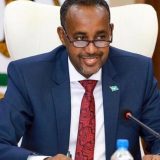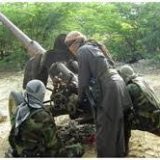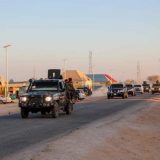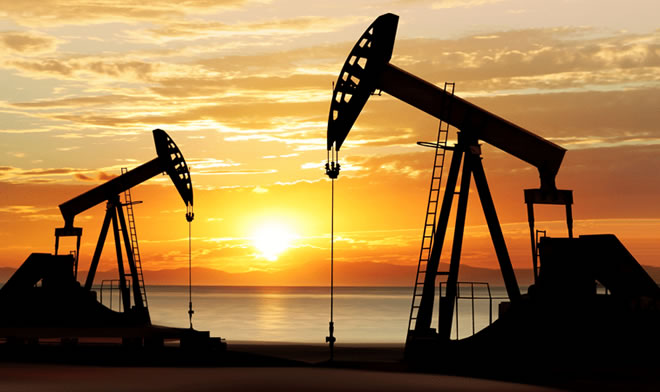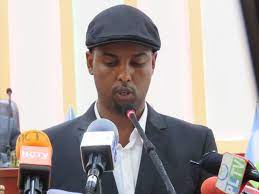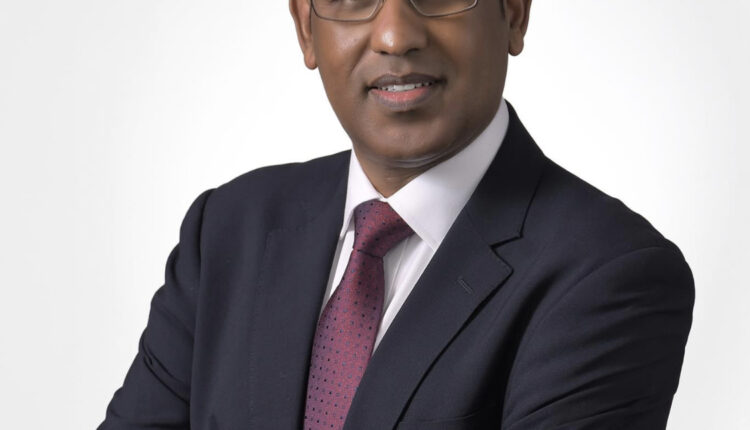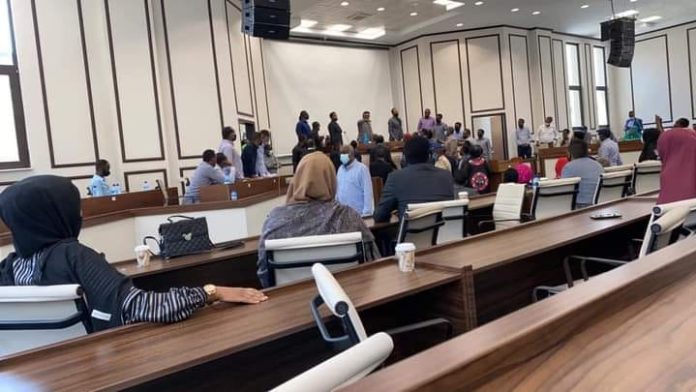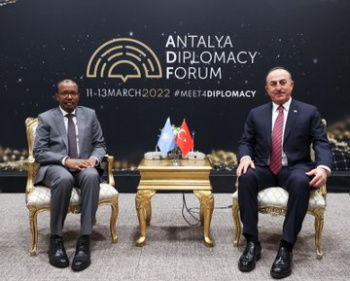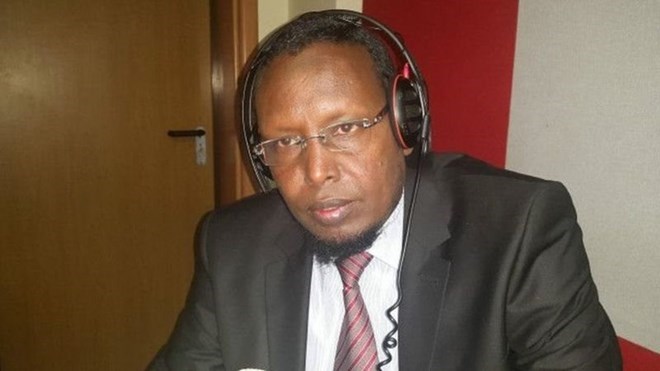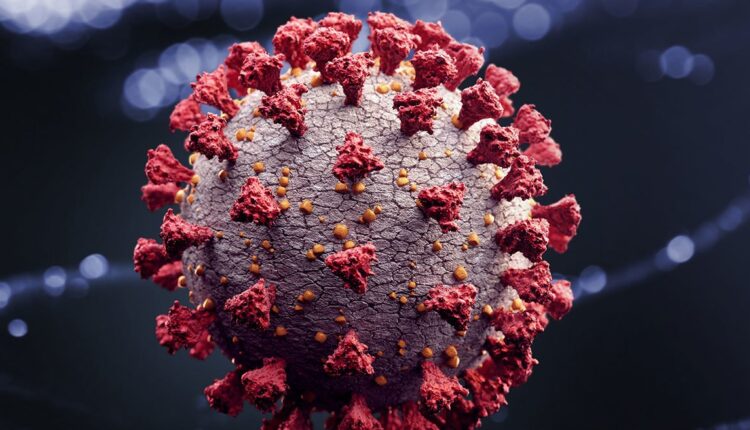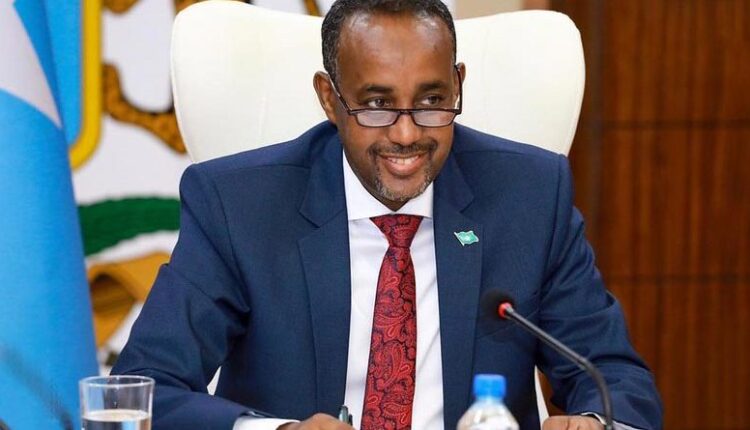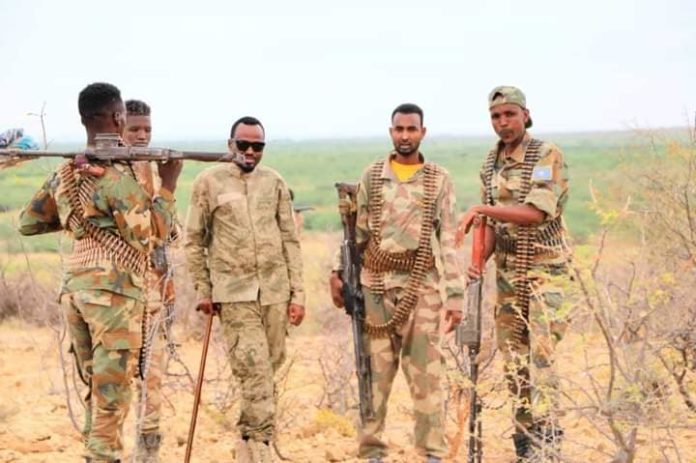EU leaders reach migration deal after talks in Brussels

Saturday June 30, 2018
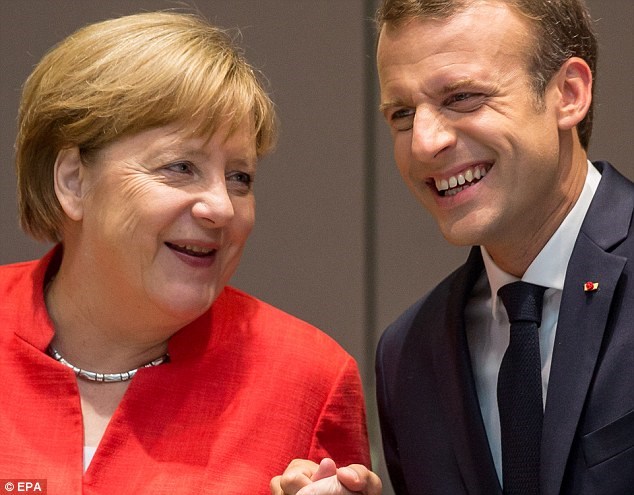
Angela Merkel has saved her political skin with an EU deal that enables Germany to send migrants back to Spain and Greece – three years after she forced Europe to open its doors to refugees.
The German Chancellor had been given an ultimatum from her hardline coalition partners to find a Europe-wide solution to the migrant crisis – or risk seeing her government fall apart.
But the 63-year-old emerged this morning after nine hours of ‘toxic’ negotiations to reveal a ‘joint text’ which included moves to stop migrants registered in Italy and other EU countries from moving on to Germany.
She said that Greece and Spain had now agreed to take back in future migrants previously registered in those countries who are picked up at the German-Austrian border. This arrangement does not include Italy, it has emerged.
Exhausted leaders also thrashed out pledges to strengthen external borders and create ‘controlled centres’ inside the EU on a voluntary basis. Refugees in these centres would be relocated within the bloc if eligible for asylum or returned to their country in the event of a failed application.
Hours later reports emerged that up to 100 Europe-bound migrants were feared to have drowned off the Libyan coast – underlining the critical need to agree a deal.
The NGOs that operate in the Mediterranean in order to rescue migrants have been enraged by the overnight deal.
‘EU member states are abdicating their responsibility to save lives and are deliberately condemning people to be trapped in Libya or die at sea,’ charity Medecins Sans Frontiers (MSF) said in a statement.
During tense negotiations, Italy’s Prime Minister Giuseppe Conte had threatened to veto a joint conclusion for the entire agenda of the summit in Brussels until his demands were finally met before dawn.
The country’s anti-immigrant government has turned away a series of rescue boats in recent weeks, sparking a fresh political row three years after the bloc faced its biggest ever migration crisis.
But as leaders left the crunch talks early this morning, Conte, who described the marathon talks as ‘virulent’ said Italy was ‘no longer alone’ in shouldering responsibility for asylum seekers.
His far-right Interior Minister Matteo Salvini later declared the meeting a victory for his nation, saying ‘Finally Europe has been forced to accept the argument of Italy’s proposal.
‘Our numerous demands have been accepted. Italy is coming out of its isolation and playing a new role.’
Merkel, under intense political pressure at home, praised leaders for reaching an agreement but admitted the bloc still had ‘a lot of work to do to bridge the different views.’
Her CSU coalition partners gave a cautious welcome to the deal this morning, with deputy leader Hans Michelbach, calling it a ‘positive signal’.
‘The question is about what’s next for national borders and the integration of migrants in the next months.’
He also spoke favourably of the alliance with the CDU. ‘We want to work together. The alliance with the CDU has absolute priority’.
The 28 leaders agreed to consider setting up ‘disembarkation platforms’ outside the bloc, most likely in north Africa, in a bid to discourage migrants boarding EU-bound smuggler boats.
However, the forces of self-styled Libyan strongman Khalifa Haftar has today rejected idea of any foreign military presence with the purpose of stemming migration.
Under the deal, EU member countries could set up migrant processing centres – but only on a voluntary basis – to determine whether they returned home as economic migrants or admitted as refugees in willing states.
French President Emmanuel Macron said these new-style centres would be reserved for countries on key migrant routes such as Malta, Italy, Spain or Greece – and not France.
‘France is not a country of first arrival. Some want to push us to that and I refused it,’ he said as he arrived for a second day of leader talks in Brussels.
Asked if Austria would open a centre, Prime Minister Sebastian Kurz said: ‘Of course not… we are not a first arrival country, unless people jump from parachutes.’
Calling the centers a ‘big step’, he added: ‘If we can only ensure that people do not come to Europe we could end trafficking and massively reduce the number of refugees coming into Europe. What is important is that this is implemented soon.’
Merkel welcomed the move, but acknowledged the hard work needed with some hard choices left for later.
‘I am optimistic after today that we can now really continue to work, although we have a lot to do, even bridging the different views,’ she said.
Merkel said this morning: ‘After intensive discussion on what is perhaps the most challenging issue for the European union, it is a good message that we have adopted a joint text.’
She had earlier warned that ‘migration could end up determining Europe’s destiny’ if it failed to reach an agreement.
This afternoon, with the summit coming to a close, EU Council President Donald Tusk said the hard-fought migration deal reached overnight was only the first stepping stone to deal with the situation.
‘It is far too early to talk about a success,’ Tusk said.
‘This is in fact the easiest part of the task compared to what awaits us on the ground when we start implementing it,’ he added.
Meanwhile, Italy has already clashed with Germany and France on Friday over exactly what was agreed.
Conte said this afternoon that the deal did not foresee that Rome would take back migrants who had moved onto Germany from Italy, a remark likely to displease Merkel who needed clear commitments to do so from EU partners to stave off the collapse of her governing coalition.
‘The accord does not foresee that Italy takes migrants from Germany,’ Conte told a news conference.
‘I did not undersign any specific agreement with Merkel’ on taking back migrants, he added.
Conte also openly denied what Macron had said earlier about new asylum processing centres, namely that they can be set up only in ‘frontline’ states, which include Italy but not France.
‘Macron was tired. I deny what he said,’ Conte told reporters, adding that all EU states could set up such centres, ‘including France’. Most migrants arrive in EU territory via Italy, Spain or Greece as they form the bloc’s southern periphery.
Conte further said that some EU states had informally offered to open these centres on their soil, but underlined that Italy was not among them.
The deal hinges on ‘voluntary’ actions from EU states on hosting migrant centres or taking refugees from other states, but Conte said that ‘procedures’ could be used against countries who do not commit to respecting the agreement.
The summit conclusions called on member countries to take ‘all necessary’ steps to stop migrants initially arriving in countries such as Italy and Greece from moving on to Germany.
After allowing more than one million asylum seekers into Germany since 2015, Merkel faces an end-of-month deadline from her own interior minister to seal pacts to curb so-called secondary migration.
Germany later announced that it had sealed deals with Greece and Spain on a key issue of taking back migrants registered in those countries.
‘Greece and Spain are prepared to accept asylum seekers who are in future identified by German authorities at the German-Austrian border and who have a Eurodac registration in those countries,’ the German government said, referring to the EU asylum fingerprint database.
EU diplomats described a tense, tortured meeting with small groups of leaders huddled together in a desperate bid to break the deadlock and avert the humiliation of heading home without having produced an agreement.
Early in the evening, Merkel and Conte set aside 45 minutes for a chat, only to break it off after 20 minutes when the Italian leader rejected the German leader’s overtures, according to diplomats.
Before the dinner clash over migration started, Conte, head of a new government that includes the anti-establishment 5-Star movement and far-right League, refused to endorse a summit text on security and trade until other leaders had bowed to his demands to help Italy manage the Mediterranean arrivals.
That forced the summit chairman Donald Tusk and European Commission President Jean-Claude Juncker to cancel their pre-planned news conference.
‘It is so toxic. They go into the room, clash, storm out, go back again, clash again. With no end in sight,’ said one exasperated diplomat as dawn approached.
‘It’s pure politics driving this, emotions are flying as high as back in 2015,’ another EU diplomat said.
Fewer than 45,000 migrants have made it to the European Union this year, according to United Nations data, a sharp drop from the tidal wave of 2015 when many thousands were entering on a daily basis.
But the political tremors are still being felt across Europe, with populist, anti-immigrant parties on the rise in many countries.
Ex-communist easterners led by Poland and Hungary are still refusing to accept a share of the new arrivals to alleviate the burden on countries like Italy and Greece.
Conte came to Brussels emboldened by the announcement of an upcoming visit to US President Donald Trump, who has hailed Rome’s tough stance, and who himself blocked the conclusions of a recent G7 leaders meeting on trade.
The Italian government demanded ‘concrete action’ from other countries to help in the same way that they had after it refused to admit the rescue ships Aquarius, which docked later in Spain, and Lifeline, which went to Malta.
EU President Donald Tusk issued a fresh warning on the need for action on migration to stave off rising populism and authoritarianism, saying that ‘the stakes are high and time is short’.
‘Some may think I am too tough in my proposals on migration, but trust me, if we don’t agree on them, then you’ll see some really tough proposals from some really tough guys,’ the former Polish premier added.
But the leaders failed to agree on long-stalled plans to overhaul the bloc’s asylum rules, which say that migrants must be dealt with by the first country in which they arrive.
The plans include a permanent scheme to share migrants arriving in Italy and Greece around all other EU countries.
The central European Visegrad states of Poland, Hungary, Slovakia and the Czech Republic known as the V4, have been implacably opposing the plan, and took last night’s meeting as quotas now being off the table.
‘Quotas were an issue for four years, and now everyone has dropped the topic. It was a big fight, the V4 was united and we achieved our goal. It’s a big success,’ Czech PM Andrej Babis said.
Polish premier Mateusz Morawiecki added on Twitter: ‘After more than two years of difficult discussions, controversies and pressure, all the 28 EU states have unanimously adopted the position of Poland and the V4. A NO for compulsory sharing of migrants and unanimous agreement on reforming the Dublin regulation.’
‘When it comes to voluntary quotas, I will be very careful. Slovakia still feels that the capacity of our facilities is still available and sufficient, where we can temporarily accommodate migrants,’ said Slovak PM Peter Pellegrini.

